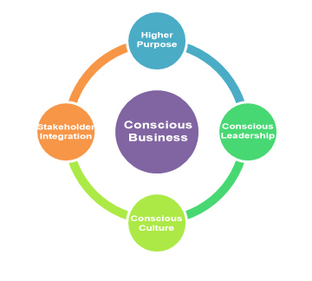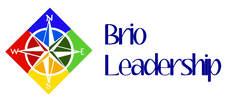 Conscious Capitalism is all about the heart and soul of a business. It is a movement that is gaining momentum and excitement in the business community, and should be foremost on the minds of family business leaders. Conscious Capitalism contrasts with traditional capitalism, whose sole purpose is to maximize shareholder (or owner) wealth. In Conscious Capitalism, the purpose of business is to advance the common good and to make decisions that benefit not just the owners or shareholders, but all the stakeholders of the business: employees, customers, shareholders/owners, suppliers & vendors, society and any other constituents that are affected by the business. If you think that talk about heart and soul of business is mushy, feel-good pablum, get this: Conscious businesses outperform the overall stock market by a ratio of more than 10:1 (Mackey, J. & Sosodia, R., 2014, p. 36). That means that Conscious Capitalism is a serious competitive advantage. It is a tough, business-minded, holistic approach to business that results in better financial performance. Here are the four tenets of Conscious Capitalism. Read them to see how close your family-owned company is to being conscious:
Brio Leadership is committed to helping our clients become Conscious Capitalists. We work with family-owned companies that have a passion for what they are doing, and want to get better at it. For more information on Conscious Capitalism, here are several resources:
and http://www.frtv.org/2013/11/conscious-capitalism-liberating-the-heroic-spirit-of-business-part-two/ My colleague, Whitney Johns Martin of Texas Women Ventures, is featured in this segment.
References: Mackey, J., & Sisodia, R. (2013). Conscious capitalism: Liberating the heroic spirit of business. Boston, Mass: Harvard Business Review Press Kristin Robertson, CEO of Brio Leadership, is dedicated to increasing the number of employees who are excited to go to work on Monday mornings. Services include executive coaching, leadership development classes and company culture consulting. Don’t forget to get a copy of Kristin Robertson’s new book, Your Company Culture Ecosystem, available on Amazon.
2 Comments
1/12/2015 03:23:49 am
Hello Kristin:
Reply
Leave a Reply. |
From the desk of
|
Our services |
Our Company |

 RSS Feed
RSS Feed

